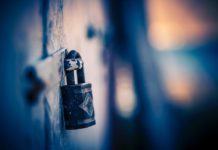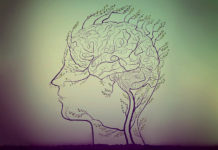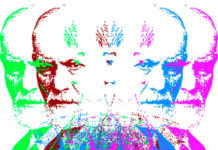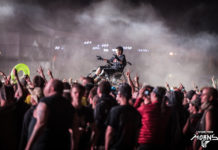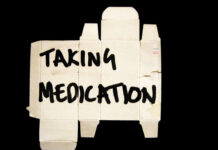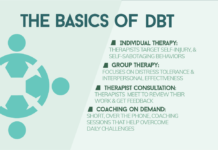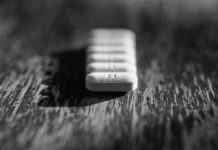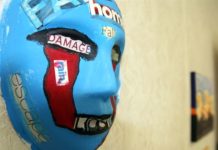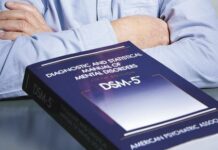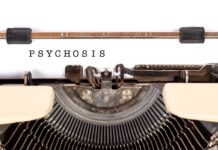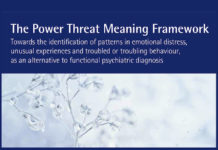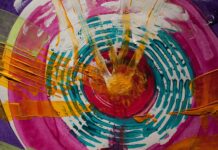Enslaved to Abilify
A very gifted and compassionate friend recently said that she feels enslaved to Abilify - that she has tried to taper off it several times but always ends up slipping into an extreme state, no matter how slow she tapers. She said this repeated experience makes her feel like a slave, because she has to go back on the drug to stop the very intense extreme state induced whenever she tries to stop taking it.
Trauma, Psychosis, and Dissociation
Recent years have seen an influx of numerous studies providing an undeniable link between childhood/ chronic trauma and psychotic states. Although many researchers (i.e., Richard Bentall, Anthony Morrison, John Read) have been publishing and speaking at events around the world discussing the implications of this link, they are still largely ignored by mainstream practitioners, researchers, and even those with lived experience. While this may be partially due to an understandable (but not necessarily defensible) tendency to deny the existence of trauma, in general, there are also certainly many political, ideological, and financial reasons for this as well.
Healing From Schizophrenia
My experience is that living in a psychosis forces your brain to "stretch" — you develop extra capacity to handle things. I was pretty much living a normal life, even working some of the time, while having all of my psychotic problems. After the psychoses faded away, I no longer needed to fight monsters, but I still had that extra capacity left. After 11 periods of psychosis, my brain has never worked as well as it does now.
Why We Must Strike the Terms “High Functioning” and “Low Functioning” from Our Vocabulary
As I have various discussions about mental health and disability on the internet, I am disturbed at how many people continue to use the terms “high functioning” and “low functioning” when referring to people with psychiatric or other disabilities. I have heard people refer to their family members as “low functioning.” I have seen these terms used by advocates to bully and discredit other advocates who critique calls for increased levels of involuntary treatment as “high functioning” individuals who don’t know what they’re talking about.
United Nations Report Calls for Revolution in Mental Health Care
In a new report, the United Nations Special Rapporteur on the right to health, Dr. Dainius Pūras, calls for a move away from the biomedical model and “excessive use of psychotropic medicines.”
Psychodynamic Therapy Revealed to be as Efficacious as Cognitive Behavioral Therapy
Meta-analytic study finds that psychodynamic therapy outcomes are equivalent to those of CBT and other empirically supported treatments.
Study Finds Heavy Metal Music Beneficial to Mental Health
A new study highlights the role heavy metal music plays in the mental health of adolescents facing adversity.
Using Mindfulness Meditation to Cope with Suicidal Thoughts and Feelings
Suicidal torment is magnified by the loss of hope. People in life-or-death survival conditions, such as being lost in the wilderness or being held prisoner of war, will dream and plan for the future in order to make their present conditions tolerable. The critically ill heart patient expresses his faith in his upcoming surgery by making a date to play golf six weeks after the operation. But the depressed person sees no viable future. There is nothing to look forward to, no dreams to fulfill, only the never-ending hell of the eternal present.
Danish Study Finds Better 10-year Outcomes in Patients Off Antipsychotics
Study finds that 74% of patients with a psychotic disorder off antipsychotics at end of 10 years are in remission.
Victim Blaming: Childhood Trauma, Mental Illness & Diagnostic Distractions?
Why, despite the fact that the vast majority of people diagnosed with a mental illness have suffered from some form of childhood trauma, is it still so difficult to talk about? Why, despite the enormous amount of research about the impact of trauma on the brain and subsequent effect on behaviour, does there seem to be such an extraordinary refusal for the implication of this research to change attitudes towards those who are mentally ill? Why, when our program and others like it have shown people can heal from the effects of trauma, are so many people left with the self-blame and the feeling they will never get better that my colleague writes about below?
Dialectical Behavior Therapy Reduces Self-Harm and Suicide Attempts
A new meta-analysis finds that DBT reduces self-harm, suicide attempts, and reduces the frequency of psychiatric crisis service utilization.
Psychosocially Oriented Psychologists Struggle Against the Medical Model
Interviews with psychosocially oriented psychologists demonstrate their experiences of discomfort with the hegemony of the medical model in their place of work and the conflicts that arise when they attempt to provide alternatives.
Tapering Strips Help People Discontinue Antidepressants
A new study by Peter Groot and Jim van Os has found that tapering strips help people successfully discontinue antidepressant medications.
Everything Matters: a Memoir From Before, During and After Psychiatric Drugs
Psych meds can not only put weight on regardless of how you otherwise care for yourself, they also tend to make people feel gravely lethargic and vaguely sick all the time. I could not exercise as I had before. Could not. It doesn't matter how much mental health professionals try to tell us that if we just exercised we'd be okay in the face of neurotoxic drugs that cause weight gain, because the fact is the drugs impede that capacity. This is not widely appreciated or understood and people on psych meds are again traumatized and made to feel guilty for something that is truly outside of their control as long as they are taking these medications.
Recovery Porn: Tell Me Your Story, I’ll Tell You Your Value
There is little denying the power of story… until our own stories get taken from us, positioned against us, and used to determine our value as some sort of human commodity. We deserve to have our stories heard and to hear the stories of others, but on our own terms, without being fetishized or controlled, and without competition for paltry awards and recognition.
Trauma Resiliency Model: A New Somatic Therapy for Treating Trauma
Report presents new body-based therapeutic approach for shock and complex developmental trauma.
Professionals Push Back on Psychiatric Diagnostic Manual, Propose Alternatives
Criticisms of the DSM-5 spark alternative proposals and calls to reform diagnostic systems in the mental health field.
Brain Disease or Existential Crisis?
As the schizophrenia/psychosis recovery research continues to emerge, we discover increasing evidence that psychosis is not caused by a disease of the brain, but...
Surviving and Thriving After a Diagnosis of Schizophrenia
I have wanted to go public with my story ever since I started getting so dramatically better via holistic means, but I consistently chickened out. It wasn’t until I hopped on a plane to Boston to meet other psychiatric survivors at the Mad in America Film Festival in 2014 that I found the community and forum to do so.
Snapshots of Spring: Journeying Off Psych Meds After 20 Years of Compliance
My prayer to be taken out of my misery was answered, just not the way I used to envision. I managed to escape the system and here I am in the same lifetime, alive and well. I’m slowly getting acquainted with this new setup and am eternally grateful for yet another opportunity at life, which I hope does not slip through my fingers.
Living in One of R. D. Laing’s Post-Kingsley Hall Households
Kingsley Hall was the first of Laing’s household communities that served as a place where you could live through madness until you could get it together and live independently. It was conceived as an “asylum” from forms of treatment — psychiatric or otherwise — that many were convinced were not helpful, and even contributed to their difficulties. By the time I arrived in London in 1973 to study with Laing there were four or five such places. Getting in wasn’t easy.
Why I Created an Alternative to Psychiatric Hospitalization
I have had doubts about the current medication oriented approach to psychiatry for some time. I clearly see that medications can help some folks ease their burden and support a process of recovery. Sadly, far too often medications create problems and even limit recovery. Perhaps the greatest drawback of psychiatric medications is that we lose sight that we have to do more: more assessment, more treatment, more education, more encouragement. Medication currently forms the central and pivotal focus of psychiatric hospitalization in this country. This needs to change.
De-Othering “Schizophrenia” by Placing it in Socio-Historical Context
Understanding schizophrenia as a non-enigmatic, understandable human experience goes against a history of institutional “othering” that has sustained psychiatric legitimacy and further marginalized service-users.
The Power Threat Meaning Framework One Year On
The team that developed the Power Threat Meaning framework as a diagnostic alternative reflects on the response to the framework after one year.
Combining Art Therapy and Mindfulness for Refugees
A new article, published in The Arts in Psychotherapy, describes the ways art therapy and mindfulness have benefitted refugees and asylum seekers in Hong Kong.

